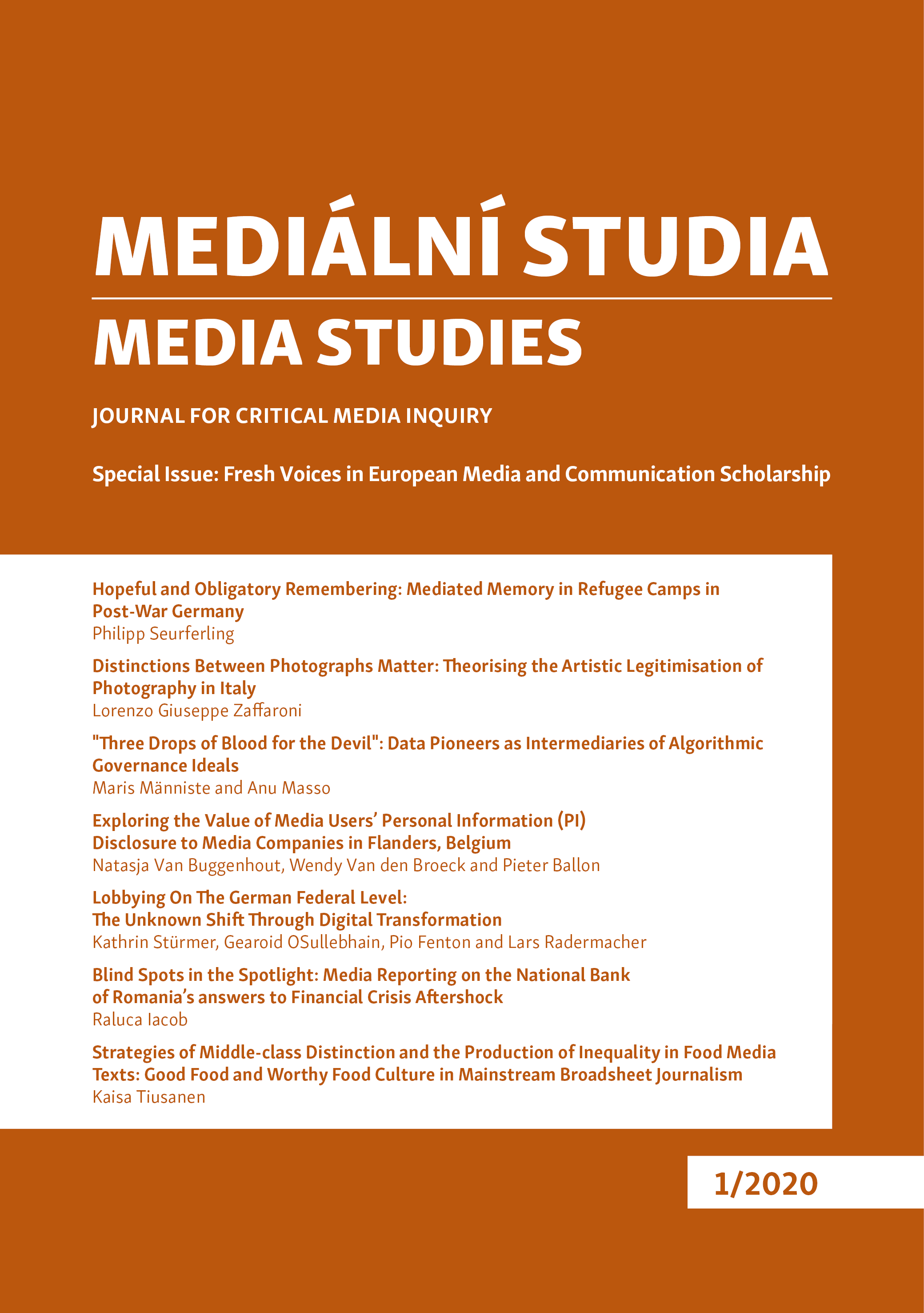Hopeful and Obligatory Remembering: Mediated Memory in Refugee Camps in Post-War Germany
Hopeful and Obligatory Remembering: Mediated Memory in Refugee Camps in Post-War Germany
Author(s): Phillip SeuferlingSubject(s): Social Sciences, Communication studies
Published by: Univerzita Karlova v Praze, Fakulta sociálních věd
Keywords: media practices; refugee camps; memory studies; mediated witnessing; media history
Summary/Abstract: This article explores mediated memory practices in refugee camps in post-war Germany. In response to refugees experiencing a disjuncture of temporality materialized in the liminal space of the refugee camp, the article argues that media practices of camp residents include practices of remembering and witnessing. Drawing on memory studies, media practices are understood as forms of “management of change” and “mediated witnessing”, enacting cultural and diasporic memory, as well as providing opportunities to remember, store the present and give witness to one’s plight. Based on an analysis of archival records from camp structures in Germany (1945–1955), examples of mnemonic media practices are analyzed. Concludingly, the article argues that mediated memory in refugee camps is characterized by an ambiguity of “hopeful” and “obligatory” memory, affected by structures and control of media and mnemonic activities, as well as agency and initiatives to remember and create memories from below.
Journal: Mediální studia
- Issue Year: 14/2020
- Issue No: 01
- Page Range: 13-33
- Page Count: 21
- Language: English

